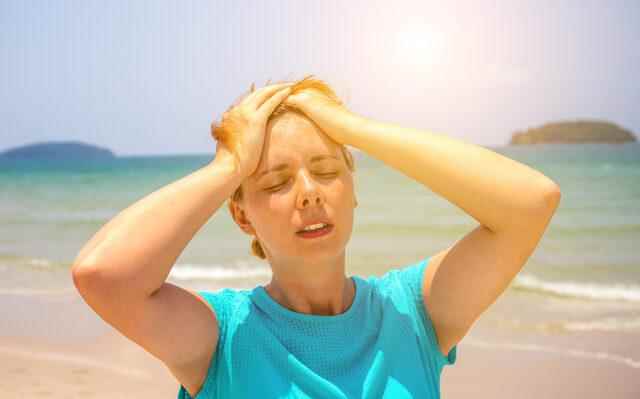Experts warned about heat stroke due to the hot weather brought by summer weather. Experts, despite the increasing air temperatures in recent days, said, “Heat stroke, which affects even healthy people, can cause many diseases such as brain hemorrhage and heart attack.
“HIGHER RISK FOR HYPERTENSION, DIABETES AND HEART PATIENTS”
Experts said, “Water consumption should be increased in extreme heat, as fluid loss in the body increases and electrolyte balance is impaired. Extreme temperatures, which can cause many diseases such as heat stroke, brain hemorrhage, heart attack, which affect even healthy people, pose a greater risk for hypertension, diabetes and heart patients. For this reason, it is necessary not to go out between 11:00 and 16:00 if possible, and those who go out should take care to stay in the shade. It is necessary to wear a hat, cool hands, face, neck and arms with water. When you go home, it will be useful in a warm shower to balance the body temperature. “Water consumption should be increased as the loss of water increases and the electrolyte balance deteriorates. If there is no disease that requires fluid restriction, it is necessary to consume 2 and a half liters of water per day,” he said.
“EVEN IF YOU DO NOT HAVE A FEELING OF THIRD IN HOT WEATHER, AT LEAST 2-2.5 L LIQUID SHOULD BE CONSUMED EVERY DAY!”
Underlining that at least 2-2.5 liters of liquid should be consumed every day even if there is no sense of thirst in hot weather, experts said, “Morning and evening hours should be preferred for intense physical activity and sports, at least 2-4 glasses of water for each hour of sports. fluid should be taken. Heavy physical activities should be avoided. At-risk adults and the elderly should be monitored for sun or heatstroke at least twice a day. The baby should be monitored more frequently in this regard.
Babies, children, the disabled and animals should never be left in closed and parked vehicles. The interior temperatures of the vehicles rise very soon after they are parked, even if there is air conditioning. When leaving the vehicle, it must be ensured that everyone gets out. Indoor areas should be well ventilated. Sun-exposed windows, curtains, etc. should be shaded with sunshades. Take frequent showers so that the body temperature does not rise; where this is not possible, the feet, hands, face and neck should be wetted with cold water or wiped.
“CONSUMPT MANY QUANTITIES OF VEGETABLES AND FRUIT”
Even if there is no feeling of thirst, at least 2-2.5 liters (12-14 glasses) of liquid should be consumed every day. Plenty of vegetables and fruits should be consumed to increase body resistance and ensure that the body receives adequate amounts of vitamins and minerals. To prevent fluid and mineral loss that increases with sweating, more fluid should be taken than usual. Although it is essential to drink water for fluid intake, beverages such as milk, ayran and fruit juice should be preferred instead of coffee, tea and carbonated drinks for non-water fluid intake. If fluid intake is restricted by the doctor or if diuretic drugs are used, it is necessary to consult the relevant doctor. Very cold and iced drinks should not be preferred as they may cause stomach cramps. Drinks containing caffeine, alcohol and large amounts of sugar should not be consumed as they cause more fluid loss from the body.
The consumption of food sold outside and in the open should be avoided, foods that are at risk of spoiling quickly (meat, eggs, milk, fish, etc.) should not be kept in the open, and hygiene rules should be observed during the preparation and cooking stages of foods.
